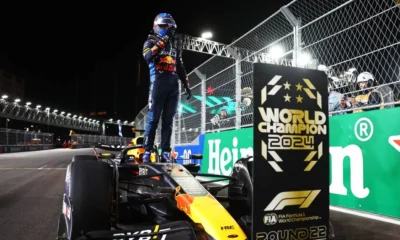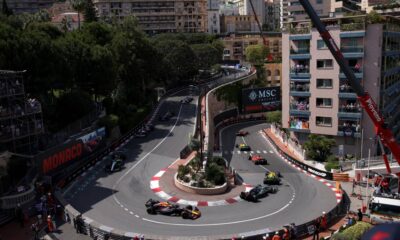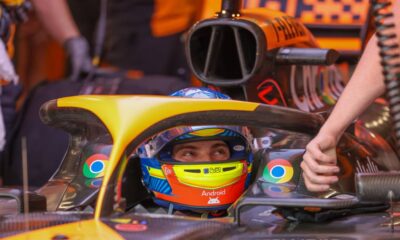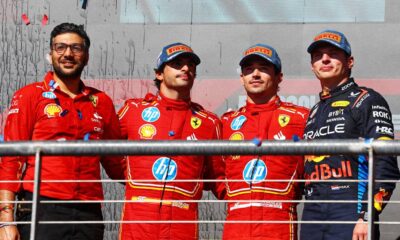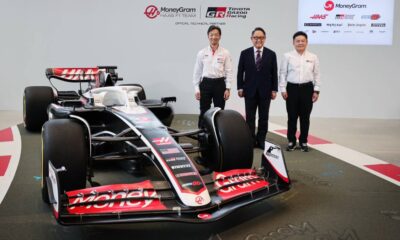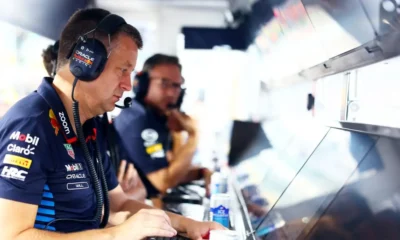Motorsport
How are things with Porsche and Audi? The bosses of Ferrari and Mercedes talk about their entry into F1
It’s a saga that’s been going on for a while. Or rather, new information keeps surfacing about Audi and Porsche’s entry into Formula One. Now Mattia Binotto and Toto Wolff have also spoken out about their potential futures, and they see a very positive future for both brands.

It’s a saga that’s been going on for a while. Or rather, new information keeps surfacing about Audi and Porsche’s entry into Formula One. Now Mattia Binotto and Toto Wolff have also spoken out about their potential futures, and they see a very positive future for both brands.
Recent speculation has been that the brands, which belong to the Volkswagen group, have delayed their entry into Formula 1 in 2026. However, this information is denied by the bosses of Mercedes and Ferrari, who instead see their joining the queen of motorsport in a very positive light.
Although nothing has been officially confirmed by either party involved so far. But the fact remains that both automakers are currently waiting to see what 2026 will bring, when new rules with regard to engines and their use will come into force.
Big changes ahead for F1
Already at the end of the year, the International Automobile Federation confirmed that the new powertrain will be based on four fundamental pillars from 2026. F1 will retain the 1.6-litre V6 engine, increase electric power to 350kW, introduce so-called cost caps on power units and – most importantly – remove the internal combustion engine (MGU-H).
Another six months later, the FIA set further preliminary targets, but this time in aerodynamic terms. In short, F1 is to be much more sustainable.
However, the FIA plans to reduce aerodynamic drag once again and preserve the attractiveness of the racing so that cars following each other can continue to chase each other easily without losing downforce, as has been the case in previous years.
More attractive rules brought us into a new era, or rather the return of ground effect to Formula 1 and the switch to 18-inch tyres. Both of these factors have a significant contribution to make to the reduction of dirty air.
However, the FIA also wants to reduce the size of the monoposts, reduce their weight, continue on the road to standardisation or simplify strategically selected components for cost reduction purposes.
Furthermore, the FIA wants to expand the use of sustainable materials and other technologies and, last but not least, continue to innovate in terms of safety for racing and the drivers themselves.
Comments by Wolff and Binott
“Honestly, the rumours are beyond me, but as far as Porsche and Audi entering F1 is concerned, we see it very positively. It’s great for F1. It’s good to have more manufacturers and it would be great to have members of the Volkswagen Group in our world, in our sport,” Binotto said in an interview with selected media, including RacingNews365.
“I think we have done everything we can to allow both brands to enter F1. We have removed MGU-H, which believe me is not an ideal choice for us. But we did it to help them enter F1. It is, after all, a technology (the internal combustion engine) that we know very well and it is efficient,” he explained.
“There is not much to add to what Mattia said. We don’t want to hold back progress, F1 is an environment where the regulations will change all the time. It’s something we can expect from them too (innovation) because we have taken big steps to let them join us,” Wolff continued, adding Binotta.
Audi and Porsche in Formula 1
Audi never entered F1 during its time in motorsport, but was very well known in the WRC, for example, while Porsche last appeared in the queen of motorsport in 1991 as an engine supplier for Footwork.
Porsche’s biggest success in F1 came in the 1980s when they supplied engines to the McLaren stable. With the TAG/Porsche designation at the time. McLaren won 24 Grands Prix between 1984 and 1987, and dominated the 1984 and 1985 Constructors’ Cup seasons.
So if Porsche and Audi enter Formula One in 2026, the big question is under what circumstances. Forming your own team is a very difficult feat these days, and not just for economic reasons. The easiest way would be to buy out one of the teams, but neither brand wants to be a “mere” engine supplier.
F1, RacingNews365

